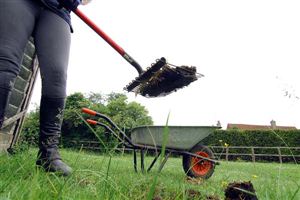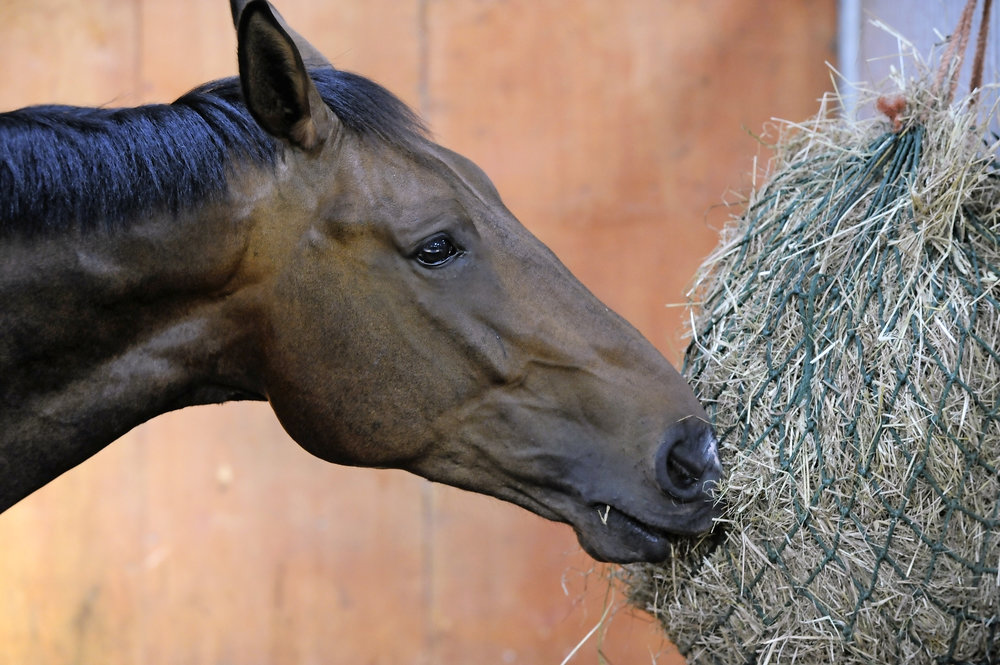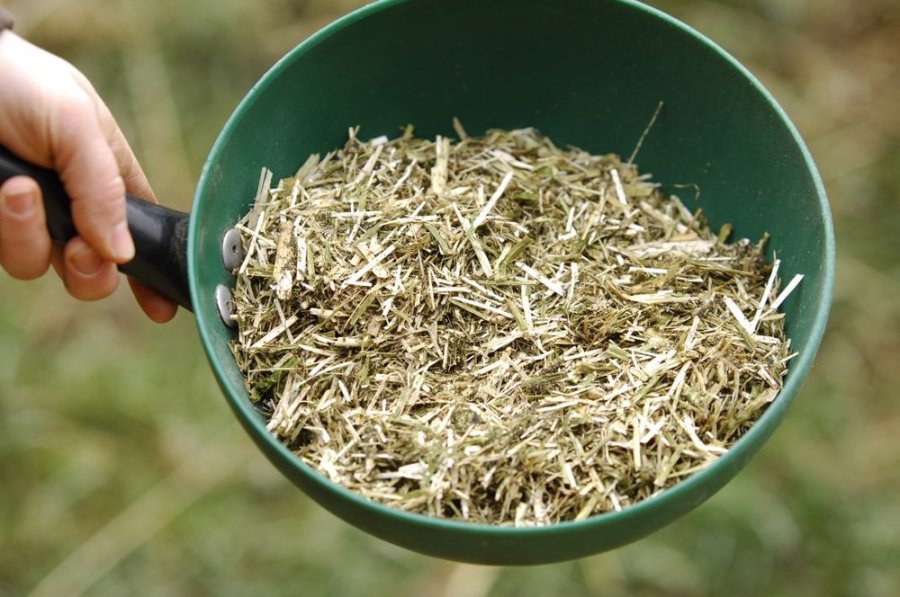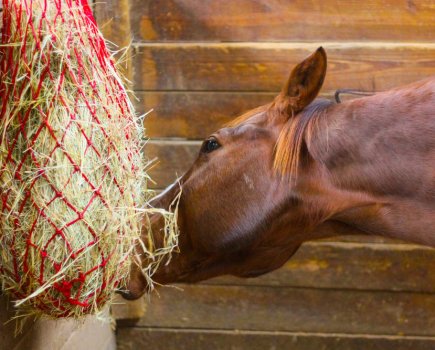Olivia Colton MSc, Senior Nutritionist at Feedmark, provides four simple tips to help combat loose droppings and ensure your horse’s digestive system stays healthy.
Runny droppings can be a sign of illness, diet or medication. If your horse is suffering from severe diarrhoea, fever, signs of colic, or weight loss, call your vet straight away.
However, if droppings are just a bit loose and your horse is well in himself, it’s likely that the cause is an upset in the population of microflora in the hind gut, caused by diet.

1. Keep high-starch meals small
The bacteria that ferment fibre need a neutral pH environment to work efficiently. If too much starch and simple sugar reach the hind gut undigested, this is quickly fermented, releasing lactic acid.
This makes the hind gut acidic, killing off the bacteria needed to ferment forage, and releasing toxins, which can lead to loose droppings, colic, and laminitis.
2. Forage first

Forage should be the basis of your horse’s diet, and horses should receive a minimum of 1.5% of their bodyweight in forage (pasture, hay or haylage) each day to prevent loose stools and weight loss.
3. Make changes to the diet gradually
The populations of microbes in the gut must have time to adapt to any dietary changes – if you make abrupt changes, these microbes can’t cope, which can lead to runny stools and diarrhoea.
Where possible, make dietary changes over a week, and if you’re introducing oil to the diet – do so even slower, over several weeks.
4. Supplements can help
If your horse is prone to loose droppings, you’ve fed antibiotics (known to harm gut microflora populations) or you’re about to change diet or management, I’d recommend feeding a pre and probiotic supplement.
Probiotics are live microorganisms that promote population growth of good bacteria in the gut. Prebiotic ingredients are not digested by the horse itself, but instead feed these bacteria, helping to support the growth of beneficial microorganism populations.
This combination of ingredients offers the best support for the gut, reducing incidence of digestive disturbance and allowing your horse to get the most of out what he’s eating.
For more advice and tips on horse nutrition visit www.feedmark.com
Don’t miss the latest issue of Your Horse Magazine, jam-packed with training and veterinary advice, horse-care tips and the latest equestrian products available on shop shelves, on sale now.









